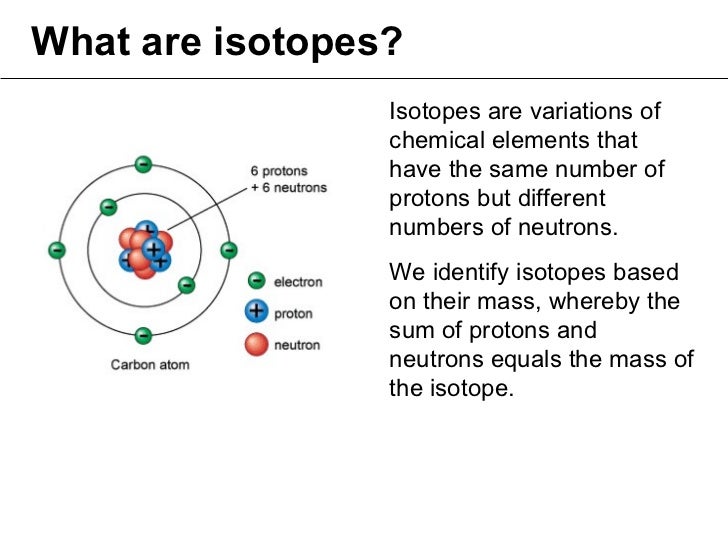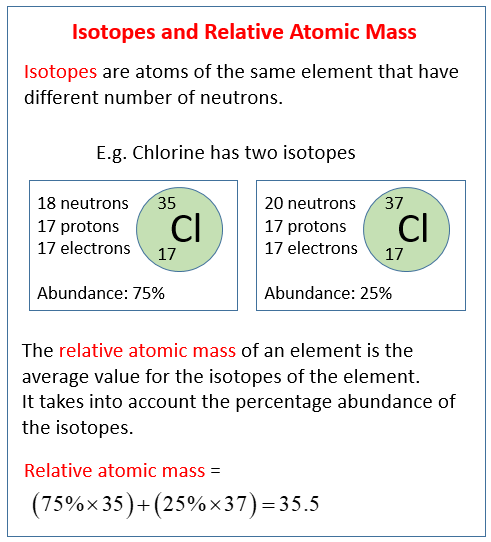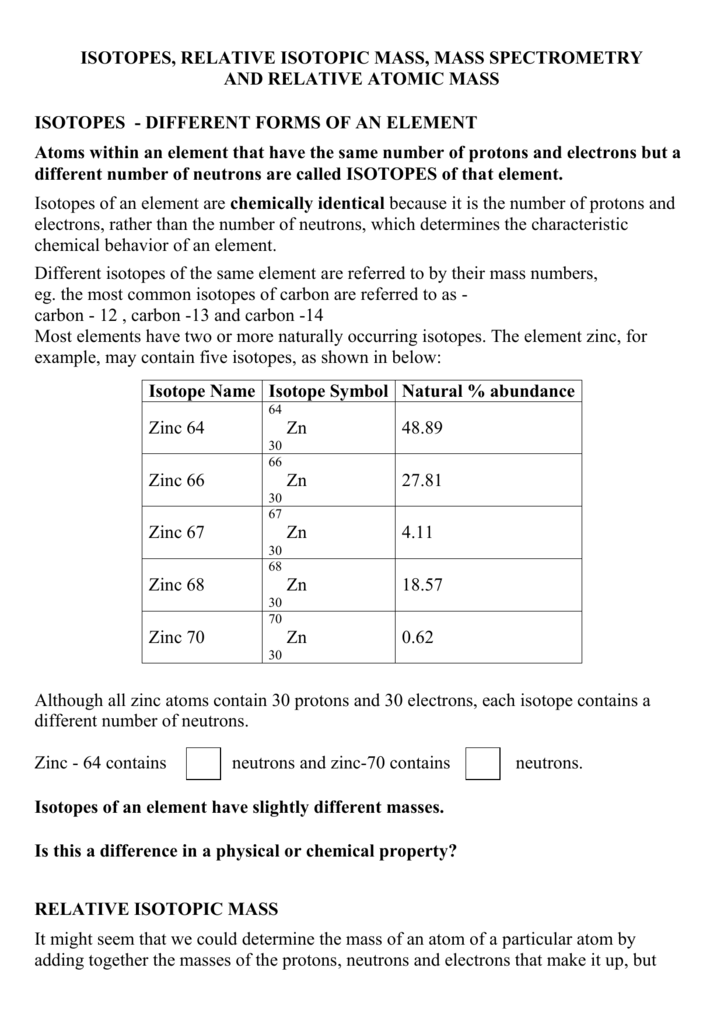- Isotopes Of The Same Element Have Different Mass Numbers
- What Is An Isotope Quizlet
- Which Statement Is True About Two Isotopes Of The Same Element?
- Isotopes Of The Same Element Have Different Number Of
Different number of neutrons. Isotopes: Any of two or more forms of a chemical element, having the same number of protons in the nucleus, or the same atomic number, but having different numbers of neutrons in the nucleus, or different atomic weights. Isotopes show different physical properties but same chemical properties. Answer verified by Toppr. Solution for Atoms of the same element that have different atomic masses are called isotopes. Isotopes - two or more atoms of the same element having different number of neutrons. For what you asking i'm not 100% sure, but i do know that the first energy level can hold 2 electrons, and the second level can have 8. Hope it helps:). Isotopes are various forms of an element that have the same number of protons but a different number of neutrons. Some elements, such as carbon, potassium, and uranium, have multiple naturally-occurring isotopes. Isotopes are defined first by their element and then by the sum of the protons and neutrons present.
A family of people often consists of related but not identical individuals. Elements have families as well, known as isotopes. Isotopes are members of a family of an element that all have the same number of protons but different numbers of neutrons.
The number of protons in a nucleus determines the element’s atomic number on the Periodic Table. For example, carbon has six protons and is atomic number 6. Carbon occurs naturally in three isotopes: carbon 12, which has 6 neutrons (plus 6 protons equals 12), carbon 13, which has 7 neutrons, and carbon 14, which has 8 neutrons. Every element has its own number of isotopes.
The addition of even one neutron can dramatically change an isotope’s properties. Carbon-12 is stable, meaning it never undergoes radioactive decay. Carbon-14 is unstable and undergoes radioactive decay with a half-life of about 5,730 years (meaning that half of the material will be gone after 5,730 years). This decay means the amount of carbon-14 in an object serves as a clock, showing the object’s age in a process called “carbon dating.”

Isotopes have unique properties, and these properties make them useful in diagnostics and treatment applications. They are important in nuclear medicine, oil and gas exploration, basic research, and national security.
DOE Office of Science & Isotopes



Isotopes are needed for research, commerce, medical diagnostics and treatment, and national security. However, isotopes are not always available in sufficient quantities or at reasonable prices. The DOE Isotope Program addresses this need. The program produces and distributes radioactive and stable isotopes that are in short supply, including byproducts, surplus materials, and related isotope services. The program also maintains the infrastructure required to produce and supply priority isotope products and related services. Finally, it conducts research and development on new and improved isotope production and processing techniques.
Isotope Facts
- All elements have isotopes.
- There are two main types of isotopes: stable and unstable (radioactive).
- There are 254 known stable isotopes.
- All artificial (lab-made) isotopes are unstable and therefore radioactive; scientists call them radioisotopes.
- Some elements can only exist in an unstable form (for example, uranium).
- Hydrogen is the only element whose isotopes have unique names: deuterium for hydrogen with one neutron and tritium for hydrogen with two neutrons.
Resources and Related Terms
Isotopes Of The Same Element Have Different Mass Numbers
- National Isotope Development Center (Isotope Basics)
Scientific terms can be confusing. DOE Explains offers straightforward explanations of key words and concepts in fundamental science. It also describes how these concepts apply to the work that the Department of Energy’s Office of Science conducts as it helps the United States excel in research across the scientific spectrum.

Isotopes are variants of a specific chemical element. For example, uranium-238, uranium-235 and uranium-234 are three isotopes of the element uranium. The listed numbers are the mass number and each isotope has a different mass number. This number is calculated by adding the amount of protons and neutrons that the isotope contains in the nucleus and it is one of the differences between isotopes from the same element. Let’s find out some of the most common similarities and differences between these isotopes.
What Is An Isotope Quizlet
Similarities between isotopes of the same element
Each isotope of the same element is identical in most ways including having the same number of protons and electrons.
Which Statement Is True About Two Isotopes Of The Same Element?
Differences between isotopes of the same element
Each isotope of the same element contains a different number of neutrons and this is the main difference between isotopes of the same element. The isotopes will also have a slightly different atomic mass because of the different number of neutrons. Radioactive (unstable) isotopes will also have different half lives (rate of decay). They may also a different type of decay and daughter isotope (daughter product), which is the product left over after radioactive decay.
Did you know?
Many of the elements have at least one stable isotope and a number of unstable (radioactive) isotopes. However, certain elements have no stable isotopes at all. This includes the elements technetium, promethium and every element after lead.
Many radioactive isotopes have very important uses in fields such as geology (radiometric dating), medicine (nuclear medicine), astronomy (radiometric dating), fire prevention (smoke detectors), food preservation (irradiation) and pest control (irradiation).
Isotopes Of The Same Element Have Different Number Of
Related Articles
